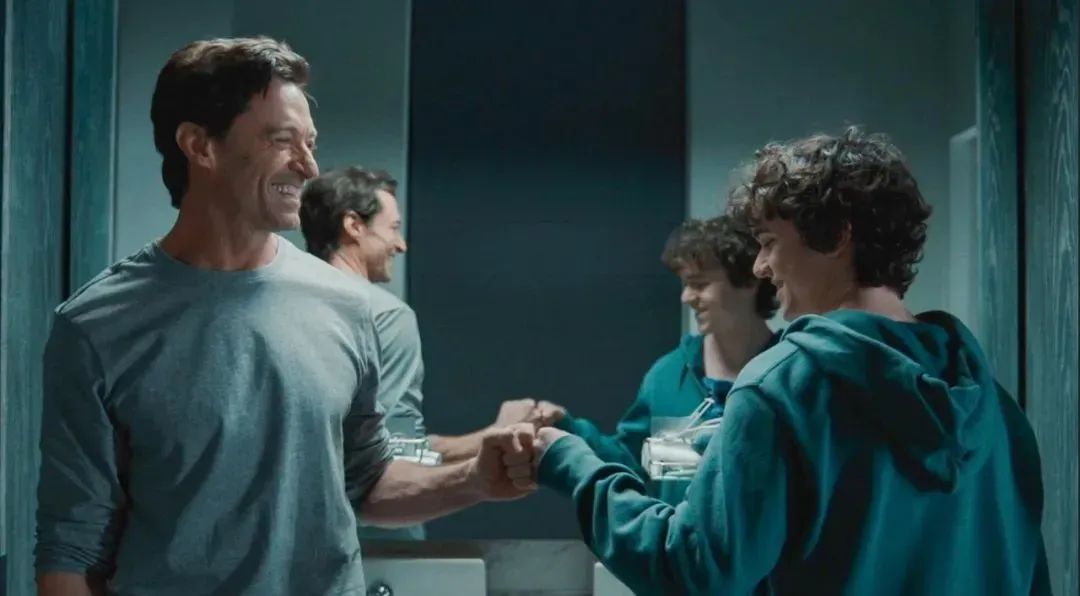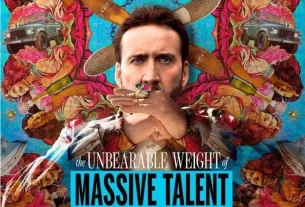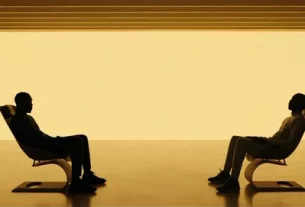The Son’ is the second film in French director Florian Zeller’s ‘Family Trilogy’, the director’s predecessor being the highly acclaimed 2020 film ‘The Father’.
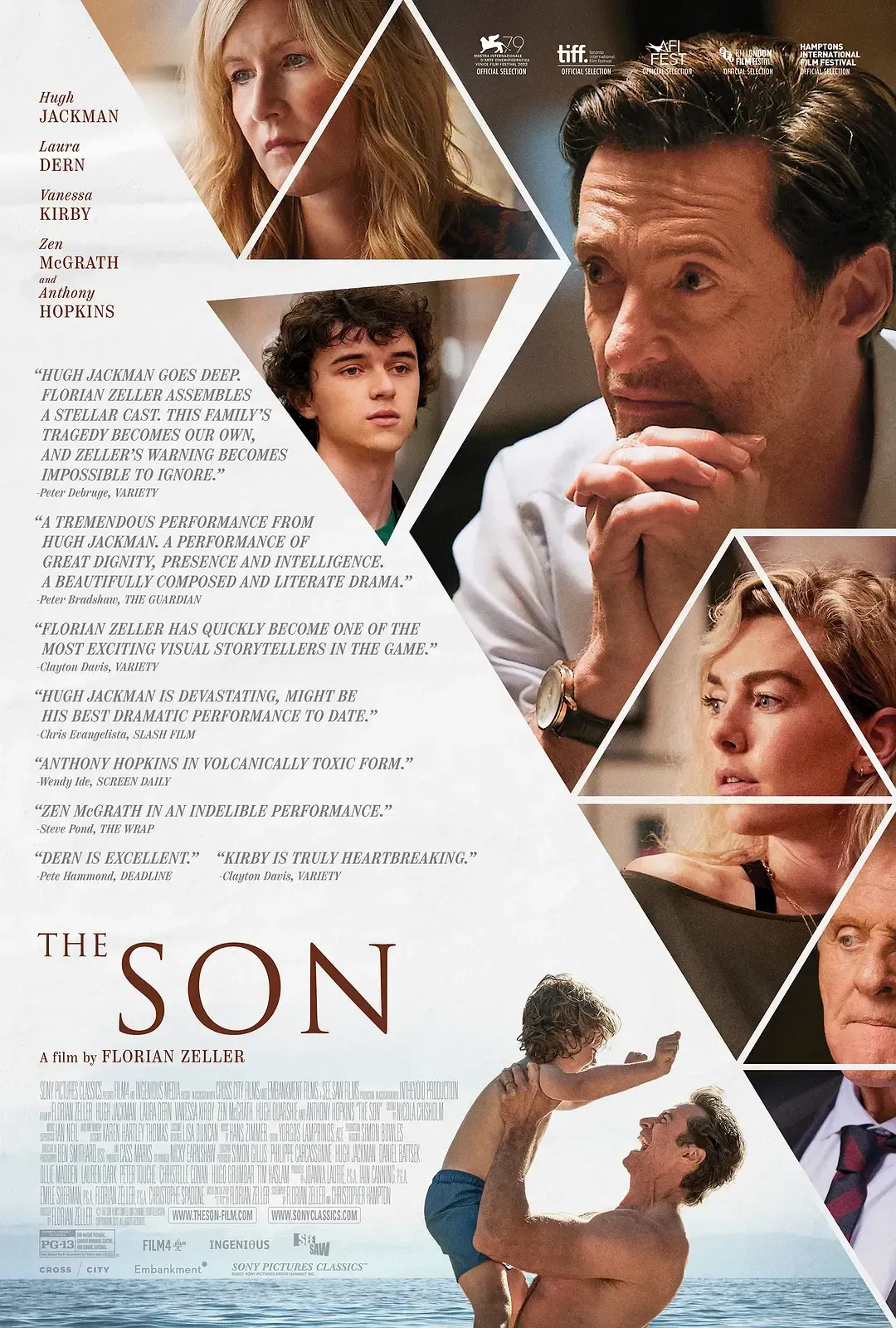
The film was not only selected for the main competition at the Venice International Film Festival, but also earned its star Hugh Jackman a Ballon d’Or nomination for Best Actor.
However, the word-of-mouth of this film is not as outstanding as the first one. The freshness index of Rotten Tomatoes of the film is only 30%, which is far lower than the 98% of the previous film.
‘The Son’ can be very luxurious when you look at the cast alone.
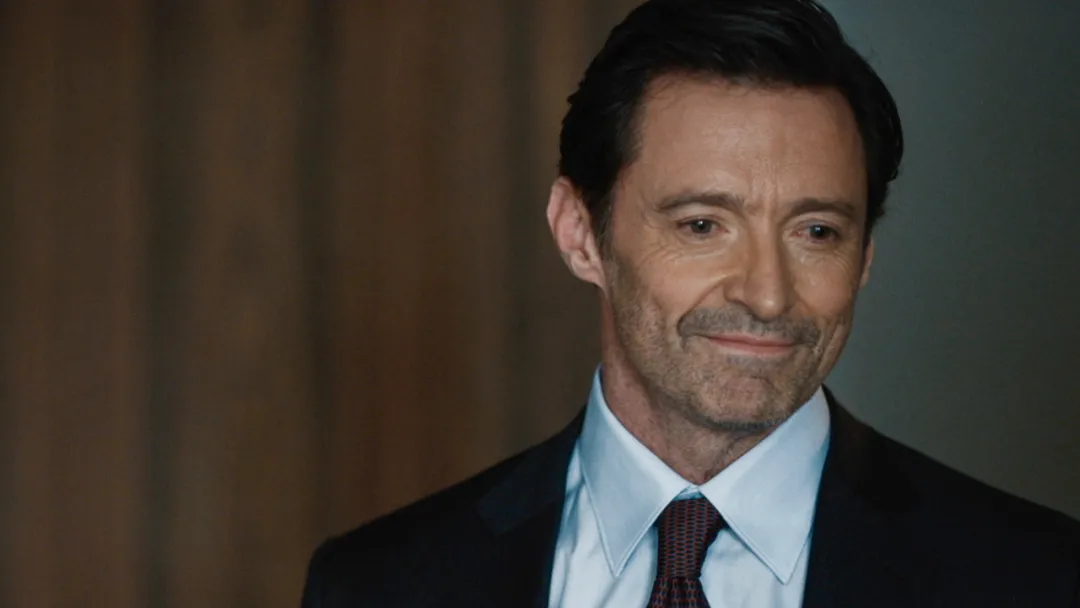
“Hugh Jackman” Hugh Jackman as the male lead, the return of Anthony Hopkins in the previous film, the star also includes the Oscar best supporting actress Laura Dern, and Vanessa Kirby, who was nominated for the Oscar for best actress.
Anthony Hopkins was the first person to see the full script of ‘The Son’ and the first actor to be confirmed for the role.
The role of Peter’s father is the director’s “tailor-made” for Hopkins. In contrast, Hugh Jackman is through writing emails to self-nominate, to get the opportunity to play the male lead Peter.
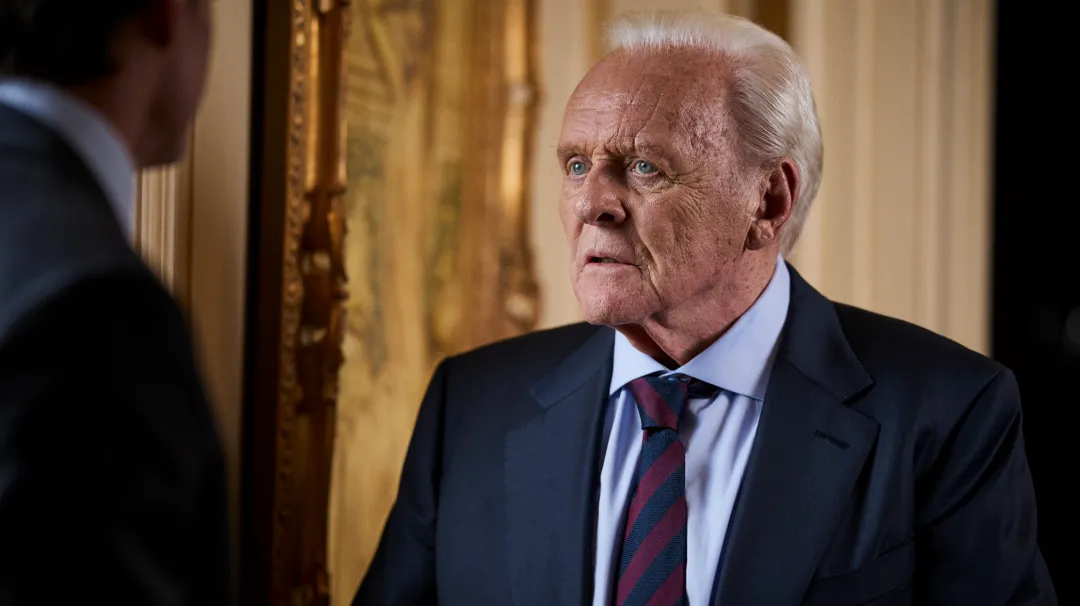
Hugh Jackman’s own father tragically died while shooting this film, and he incorporated his feelings for him into his performance.
‘The Son’ is a story that focuses on intergenerational cycles of harm, parenting issues and teenage depression. The film consists of two reconstituted families with few characters but entangled and complex relationships.
Seventeen-year-old Nicholas suffers from depression, and his mother Kate (Laura Dern) knocks on the door of her ex-husband Peter’s (Hugh Jackman) house in an attempt to get help.
Nicholas has not been attending school lately and has not been able to fit in with his classmates, and the school has even begun to consider expelling him.
Peter has found a new love, Emma (Vanessa Kirby), and they are expecting a new child.
Peter was embarrassed, but in order to assume his fatherly responsibilities, he let Nicholas stay in his house, hoping to help his son emotionally.
The adolescent son lives with his young stepmother and newborn brother, and everything seems to be running on the right track, yet several people are out of their depth and gradually slipping to the edge of losing control.
We can see that the relationship between Peter and Nicholas, father and son, is not always so cordial, and Emma complains that Peter neglects their own young son for the sake of the eldest.
Meanwhile, Hopkins plays the grandfather, who is also a key character. His attitude toward Peter is very bad, casual remarks, always flowing with a sense of mockery and ridicule.
We can already get a glimpse of the core of the story ‘The Son’ will tell: the intergenerational conflict between the characters. In this way, the film’s title is even more cryptic.
The so-called “son trapped in the mind” is the son Nicholas on the surface, but the essence is Peter, a middle-aged man.
Peter can neither dissolve the years of separation with his father nor fill the current rift with his son, plus another newborn child, he is trapped in his own mind, unable to break free.
By cutting through the topic of depression to discuss the connection between three generations of two families, it can be said that ‘The Son’ does not exactly follow the successful path of its predecessor, but tries to tell a story with a new core.
Hard to surpass the previous work – ‘The Father’
Two years ago, the director’s previous film ‘The Father’ was a huge success and won two big Oscars for Best Actor and Best Adapted Screenplay.
Today, I also want to talk a little more about this excellent prequel.
The success of its predecessor is due to its solid script, innovative narrative approach and unique audio-visual design, not to mention the masterful performance of Anthony Hopkins.
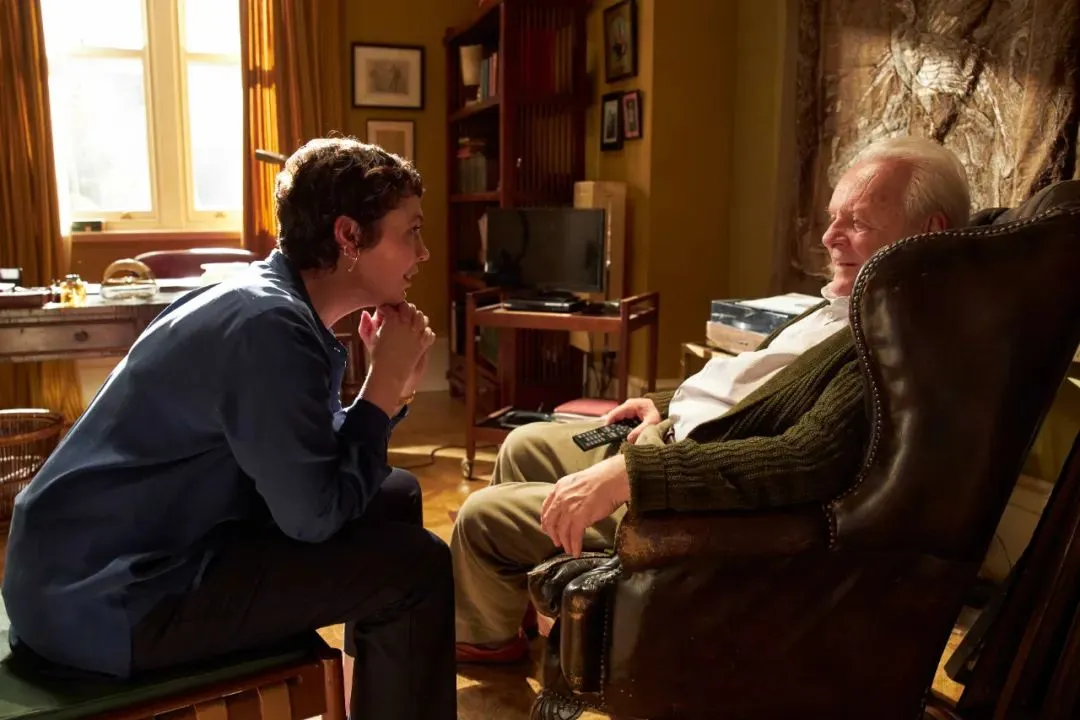
The Father’ focuses on Alzheimer’s disease, which is more common in the elderly, and while the story is extremely realistic, its narrative is anything but simple.
Most of the film’s scenes take place indoors, as the story was originally adapted from a stage play.
This tight space allows the dramatic conflict to be fully released, but also symbolizes that the characters are trapped in their own consciousness and cannot break free. At the same time, the film’s narrative is also quite “suspenseful”.
In the first half, Anthony, who suffers from Alzheimer’s disease, has a confused consciousness and can barely distinguish between reality and his own fantasies.
While watching the film, the viewer follows Anthony’s point of view, again unable to distinguish between truth and falsehood in the narrative at first glance.
This design not only fully expresses the mental state of Anthony’s characters, but also gives the whole story a strong sense of immersion.
Its audiovisual design is also impressive, with the film using a lot of empty shots, especially in the opening section.
These empty shots are the “punctuation marks” between each scene, which not only divide the different narrative scenes, but also adjust the rhythm of the narrative, allowing the audience to have a buffer space.
At the same time, these empty shots represent the passage of time, and it is even difficult for the audience to tell how much time has passed in the film.
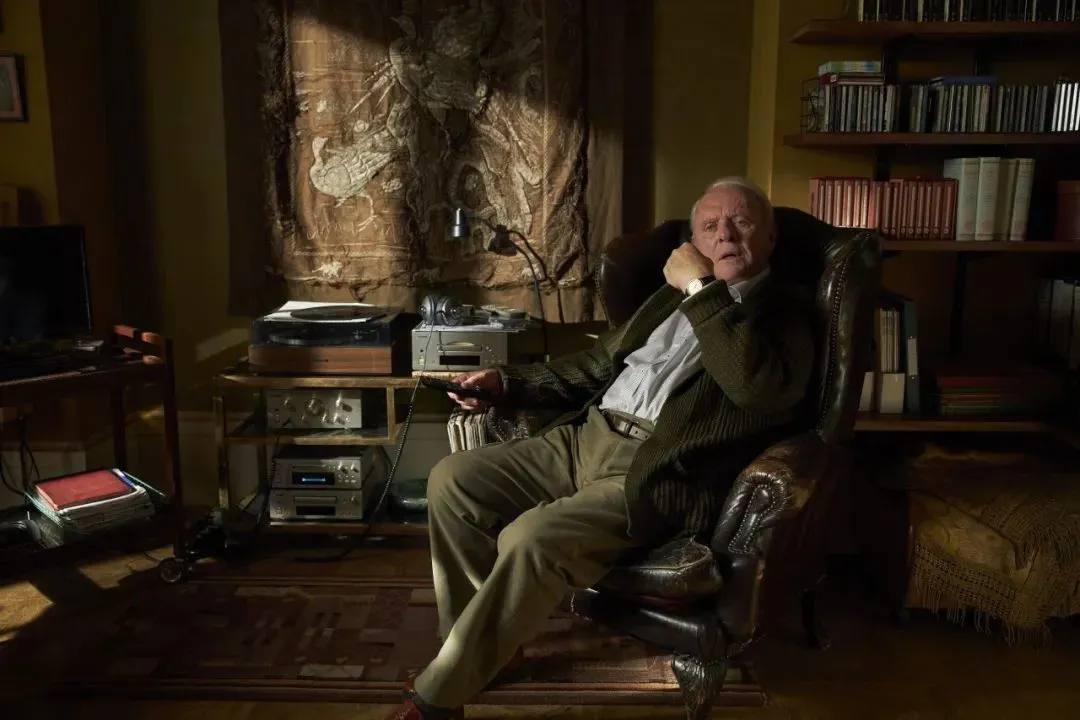
By the time Anthony starts to have trouble remembering what happened in the last scene, a long time may have actually passed in the film.
The use of a few simple empty shots can produce such a fascinating effect, you can see that the film’s creative team in this area of lens design, put a lot of effort.
Meanwhile, Hopkins’ outstanding performance adds a lot of points to ‘The Father’.
To play a good Alzheimer’s disease patient, the actor must not only understand the script and the character, but also be able to improvise on the spot.
His performance is close to perfection, the character’s anger, helplessness and aggravation and a series of emotions are very well placed.
It is these aspects of intention that have earned ‘The Father’ worldwide acclaim.
So, does ‘The Son’ do any of these things?
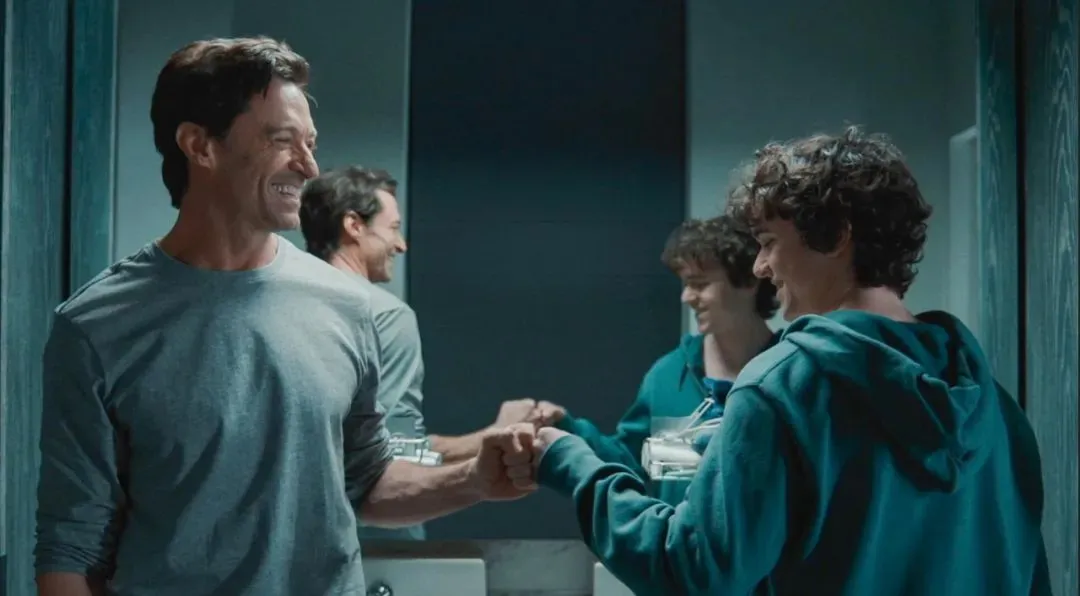
So far, the new film has major differences in the narrative level compared to its predecessor.
The first one has relatively few characters and a tight narrative.
The second film, because of its generational core, means that the film will revolve around multiple characters and the relationships between them are particularly important.
In the first film, the audience is often following Anthony’s perspective, we can experience the protagonist’s confusing sense of time and space and intertwined memories.
But the second film clearly shifts to an objective narrative, switching between several characters.
This also means that the labyrinthine narrative structure of the first film, which allowed the audience to quickly immerse themselves, no longer exists.
But the director also designed a new set of camera language for the new film this time.
For example, “When Peter thought he could find a way to help his son, we would use very steady shots in order to make the audience feel that everything was under control.”
“We use handheld cameras when he realizes the situation has gotten out of hand in order to give the audience a sense that the world has become unstable and is about to fall apart.”
In the story level, the film leaves a lot of fascinating “unsolved mysteries”.
For most of the film, Peter is solving his son Nicholas’s growth problems, the boy’s rebellion and self, and his father’s relationship is very tense, where the problem lies?
Peter in the film is not an irresponsible father, he can provide his son with a good environment for growth and education, give him patient and meticulous care, and can even give up part of his job for it, his current wife is also very supportive of him.
But Peter unconsciously learned from his father the value of “you are my son only if you are good”. Even though his relationship with his father was indifferent, he still tried hard to become the good child his father expected.
After Peter became a father, he then approached his son Nicholas with the idea that he wanted him to be just as good.
It’s an “intergenerational” dilemma: Peter tries hard to be a different kind of parent than his own father, but inevitably passes on the damage he’s suffered to his children.
Faced with the emotional pull and emotional dilemma of two families, Peter and all his family members are wracked with anxiety and devastation.
But the source of the problem, the mental health of his son Nicholas, has been neglected instead.
Can the rift between two families and three generations be bridged or not?
‘The Son’ brings the audience the experience of navigating through an emotional storm with a story of intertwined warmth and pain, and a realistic warning that cannot be ignored.
When I looked up the interviews, I found that both “Hugh Jackman” and director Florian Zeller mentioned the phrase “love is not the cure-all”.
Although love can do everything, many times love alone is not enough. The topic of adolescent mental health issues and depression in the film is a hot topic of discussion in society today.
When it comes to mental health, everyone needs to “cut themselves some slack” at the right time. Opening up, admitting we don’t know what to do, and accepting our true emotions is perhaps the first step.
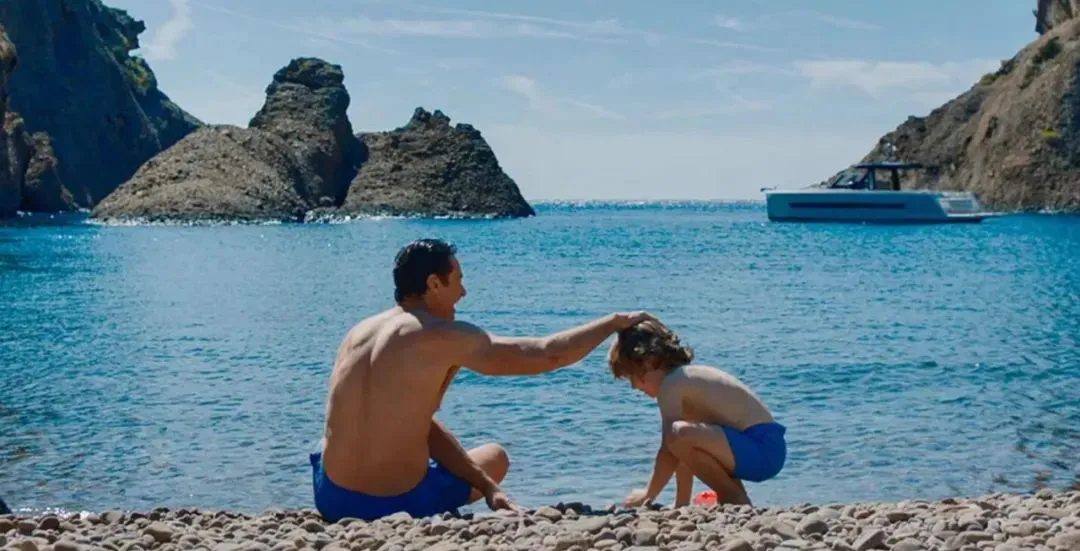
Related Post: ‘The Son’: Why does the heart-wrenching father-son relationship in the film make us deeply empathize?
Related Post: “The Son” premiered at the 79th Venice International Film Festival, Hugh Jackman kisses his wife on the red carpet.
